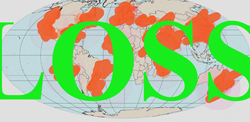Trigger Point Theory as Aesthetic Activism is a systematic way to initiate “environmental triage.” The theory includes strategies to restore degraded environments characterized by 8 premises and 12 procedural actions that draw equally from science and art. In workshop form, it is a methodology that integrates charettes, metaphorical allusions, role-playing embodiment techniques, meditation and discourse to identify small catalytic points to “trigger” ecosystem sustainability. These techniques are presented as experiments contextualized by scientific knowledge, including Geographic Information Systems science (GISc). The goal of these workshops is to create analogs to agent based models used in landscape ecology. The analogs function as “expert systems,” to contribute new knowledge to ecological conservation and restoration work. The workshops for and research into this methodology is a means to rethink how to stabilize transitions in large landscapes at the point of threshold collapse. One of those premises is that it is possible to distinguish and prioritize one “patch” in a landscape system whose restoration might have greater significance to food webs than others. The supposition that a systematically identified ecological patch might leverage significant change to a damaged ecosystem, is analogous to Donella Meadows hypothetical work which helped develop systems theory.
The next Trigger Point Workshop is scheduled: March 10th 12:00-1:00pm for The Culture of Climate Change, The 10th Annual Nature Ecology Society Colloquium, CUNY Graduate Center, CUNY New York, NY (USA) – Contact Person: Shawndel Fraser, SFraser@gc.cuny.edu

